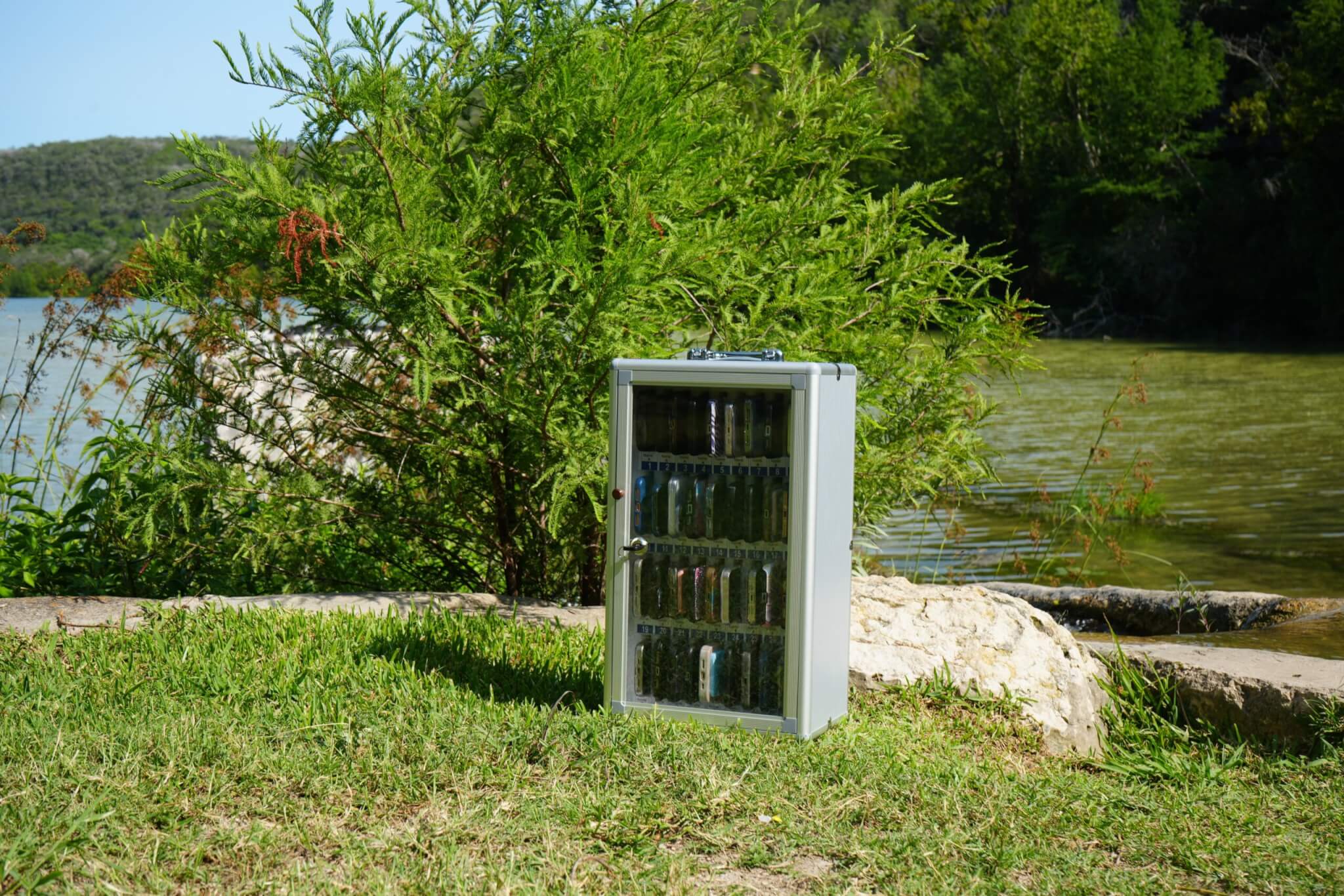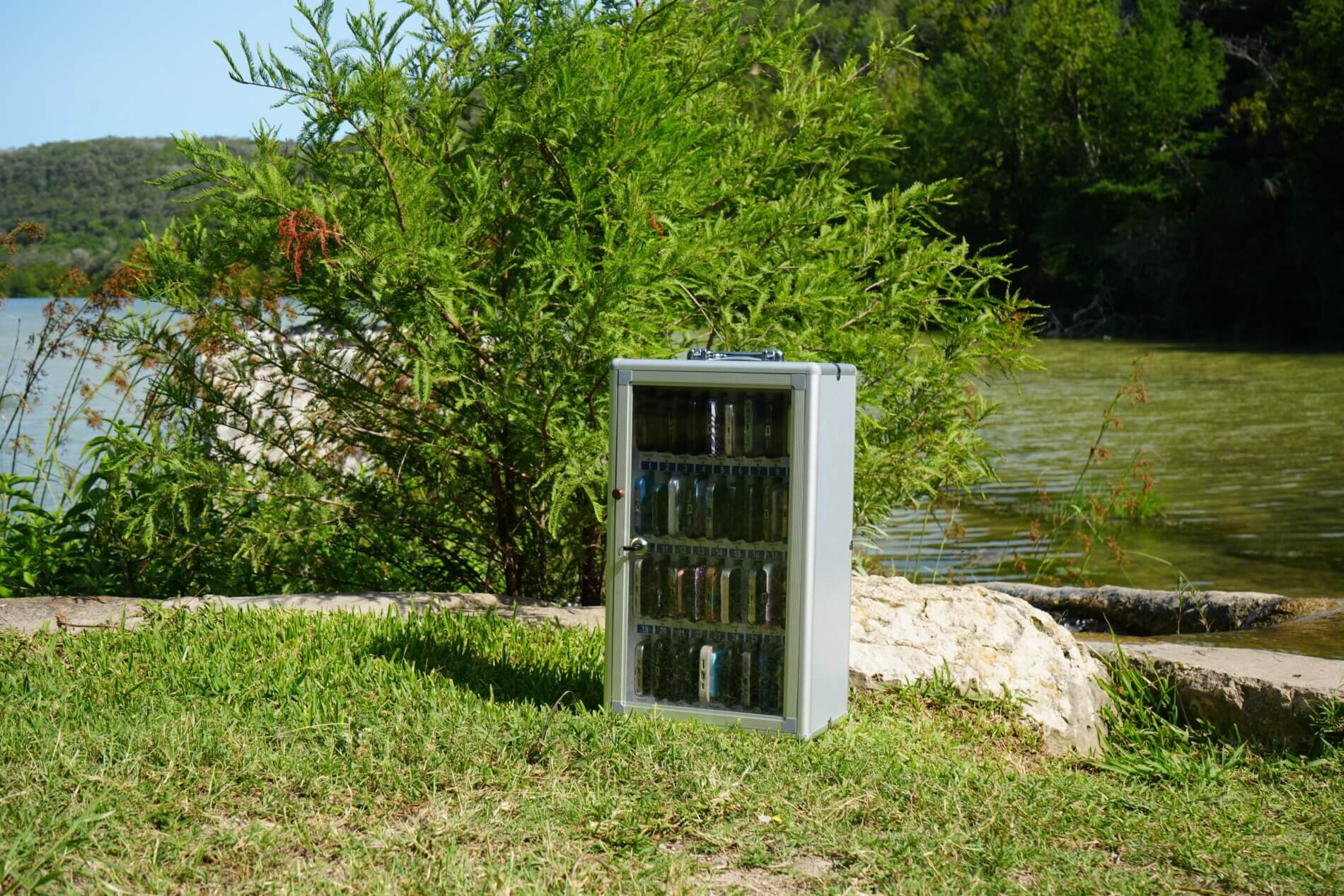

“THAT’S THE SERENITY DAY SPA
FOR COUNSELORS’ CELL PHONES,”
said Cary Hendricks, our executive director of camping programs.
He was talking about a large box at Laity Lodge Family Camp— about the size of a dorm fridge. Through the locked glass door, I could see dozens of phones locked inside. Echo Valley and Singing Hills have boxes just like it.
It’s optional, Cary said, but most counselors lock their phones up, choosing to live for a few weeks with zero distraction from technology.
Just two months before camp started this year, Jon Haidt published a new book, The Anxious Generation, in which he argues for a technology reset. Statistics indicate that smart phones and social media have rewired our children in ways that have likely contributed to our current mental health crisis. College freshmen are now three times more likely to report psychological disorders than ten years ago. The rates of depression, anxiety, self-harm, and suicide are doubling and tripling across the world for our teenagers and young adults.
Jon Haidt is urging parents to establish new norms for childhood, including phone-free schools and more independent free play in the real world. At the American Camping Association (ACA) gathering this year, he was even more specific, “Summer camp! It’s the most effective way I know of to reverse the phone-based childhood and restore a playful, real-world childhood, at least for a few weeks each summer. Parents and schools can then build on that detox period to give kids a more joyous and healthy childhood when they return.”
During fourth session at LLYC, I talked with three 16-year-old campers to learn a little more. First, I wondered if they experienced something like phone withdrawal during the first few days of camp. They didn’t. Second, I asked if they worried they were missing out on communications from friends back home. They weren’t. Both of my expectations were flat wrong!
Instead, they talked about the power of the real-world relationships they were experiencing at camp, and they wished they could engage with their friends back home just like they did at camp—keeping their phones put away.
Two years ago, ACA and camps from around the country came to Laity Lodge to discuss ways to provide mental wellness for campers and counselors. I wrote about it in Echoes at the time, and I have an exciting update! This summer, 75 camps adopted a mental health awareness program called CampWell. Very soon, they will be reporting back on their first summer implementing the program, and we hope this catalytic effort will help camps across the country be even more intentional about serving their kids.
Lately, we have been thinking of camp as a way to rediscover the real world. I want to be clear: our phones aren’t evil. But unchecked, we let them distract us from what really matters—what is true and honorable, just and pure and beautiful. We can all be more human—less anxious and less depressed even—when we set aside habits of distraction. Our actions can also inspire others. Our institutions—our churches, our offices and schools, our dinner tables—can be places that encourage direct engagement.
WE CAN BE LEADERS BY SENDING OUR PHONES
TO THE SERENITY DAY SPA.